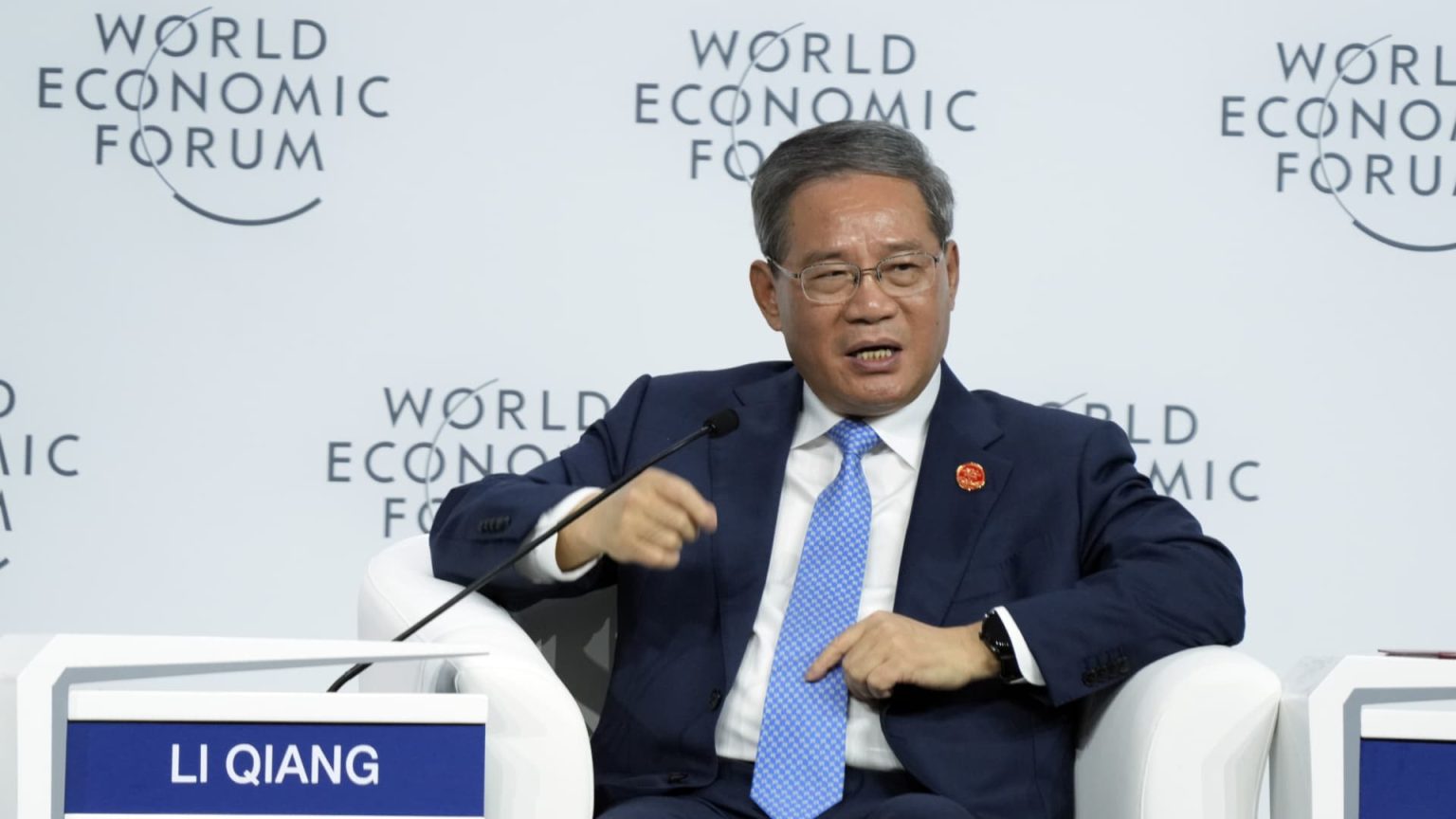Chinese Premier Li Qiang emphasized the importance of global cooperation in trade during his address at the World Economic Forum’s annual “Summer Davos” event held in Dalian, China, on Wednesday. Despite surging tariffs and mounting geopolitical tension, Li urged nations to prioritize collaboration over divisive politics. His remarks came amidst discussions about reshaping global trade norms, as well as maintaining a positive outlook on the Chinese economy.
| Article Subheadings |
|---|
| 1) Addressing Global Economic Challenges |
| 2) The Importance of International Collaboration |
| 3) Recent Diplomatic Engagements |
| 4) The Future Outlook for China’s Economy |
| 5) Insights from Economic Experts |
Addressing Global Economic Challenges
At the “Summer Davos” event, Li Qiang took a firm stance on the challenges facing global trade. He noted the growing number of tariffs and trade barriers that countries are implementing. “Globalization will not be reversed,” he stated, highlighting the importance of not letting these challenges turn trade into political or security issues. This underscores a pivotal moment in international commerce, where the role of political leaders is increasingly scrutinized in relation to global market stability.
The World Economic Forum is known for bringing together global leaders to discuss pressing economic issues. By highlighting the risks of turning trade into a geopolitical dispute, Li aimed to reassure nations that cooperation can prevail over the rising tide of protectionism. The event itself serves as a reflection of ongoing tensions in the international economic landscape, particularly between major economies like the United States and China.
The Importance of International Collaboration
During the event, Li underscored the necessity for nations to collaborate rather than retreat into unilateralism. He advocated for countries to abide by what he referred to as the “right path” for economic engagement. This message was particularly poignant in a time when global trade faces significant disruptions due to political strife and fluctuating tariffs.
One of the highlights of Li’s address was the recent signing of a “Convention on the Establishment of the International Organization for Mediation” by over 30 countries in Hong Kong the previous month. This initiative aims to leverage Eastern wisdom in resolving international disputes, which Li firmly believes enhances trust and stability among nations engaged in trade. This integration of cooperative dispute resolution mechanisms is crucial for navigating future challenges in international trade.
Recent Diplomatic Engagements
In the week leading up to the conference, Li met with leaders from several nations, including Lawrence Wong of Singapore, Pham Minh Chinh of Vietnam, and Daniel Noboa Azín from Ecuador. These diplomatic engagements further solidify his commitment to fostering stronger ties with countries across Asia and beyond.
These meetings reflect a strategic move by the Chinese Premier to open dialogues on various issues, ranging from trade partnerships to global economic policies. Such interactions not only demonstrate China’s intention to strengthen regional cooperation but also signal a united front against rising protectionist policies in different parts of the world. Leaders from diverse backgrounds attending the forum are a testament to the desire for constructive dialogue and actionable plans to enhance trade relations.
The Future Outlook for China’s Economy
While addressing the forum, Li Qiang maintained an optimistic viewpoint regarding the landscape of the Chinese economy. He indicated that the Chinese government is committed to transforming the country into a major consumption powerhouse, alongside its already established manufacturing capabilities. This vision underscores China’s strategic shift towards a more balanced economic model that emphasizes sustainable growth and domestic consumption.
Such moves are essential not just for revitalizing the Chinese economy domestically but also for reinforcing its role in global markets. The focus on consumption and reducing reliance on export-led growth indicates a long-term vision aimed at stabilizing the economy while also dealing with international pressures.
Insights from Economic Experts
Economic pundits like Adam Tooze, a professor at Columbia University, have expressed intrigue over Li‘s remarks, particularly his thoughts on “reshaping the rules and order” of international trade. He coined the idea of pluralization in global governance, suggesting a move away from singular frameworks of dominance to a more diversified system that accommodates varying perspectives and interests.
The emphasis on processes rather than the identity of those setting the trade “order” indicates a broader acceptance of multipolarity in global governance. Economic experts agree that a collaborative approach to defining global trade rules could yield long-lasting benefits for participating nations, thereby fostering a more resilient trade environment that can withstand geopolitical tensions.
| No. | Key Points |
|---|---|
| 1 | Chinese Premier Li Qiang called for global cooperation amid rising trade barriers. |
| 2 | He emphasized the need to avoid politicizing international trade. |
| 3 | More than 30 countries recently signed a convention aimed at dispute mediation. |
| 4 | Li reiterated China’s focus on becoming a major consumption powerhouse in addition to manufacturing. |
| 5 | Experts highlight the evolving nature of global trade dynamics towards pluralization. |
Summary
The World Economic Forum’s “Summer Davos” event highlighted the ongoing challenges facing global trade and the importance of cooperation among nations. Li Qiang’s address focused on the necessity of overcoming rising tariffs and the potential pitfalls of integrating politics with trade. As many countries seek to redefine their positions in the global market, the insights offered during the conference underscore an urgent need for collective efforts in reshaping international trade norms.
Frequently Asked Questions
Question: What is the significance of the “Summer Davos” event?
The “Summer Davos” event is significant as it serves as a platform for world leaders to discuss pressing economic issues and foster collaboration in the international trade arena.
Question: Who were some key attendees at this year’s conference?
Key attendees included Singapore’s Prime Minister Lawrence Wong, Vietnam’s Prime Minister Pham Minh Chinh, and Ecuadorian President Daniel Noboa Azín.
Question: What are China’s ambitions regarding its economy?
China aims to transition into a major consumption powerhouse alongside its established manufacturing base to boost sustainable growth and reduce reliance on exports.


